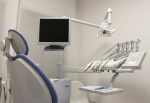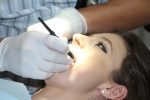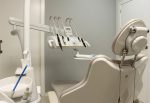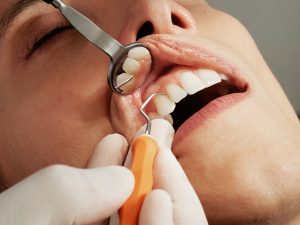
A dental hygienist is a professional who works with a dentist to provide customers with various services related to their oral health.
They can have many responsibilities in the office.
They do provide a checkup for patients or a preliminary exam before the dentist performs procedures.
They are the key to helping inform and educate the dental clinic’s patients and help establish a good oral hygiene routine in children and teens.
This is an essential job in demand across the country in just about any area.
Anyone considering this professional field should consider the pros and cons of the job and then decide if it’s the path that matches their skills and lifestyle needs.
Page Navigation
Pros of Being a Dental Hygienist
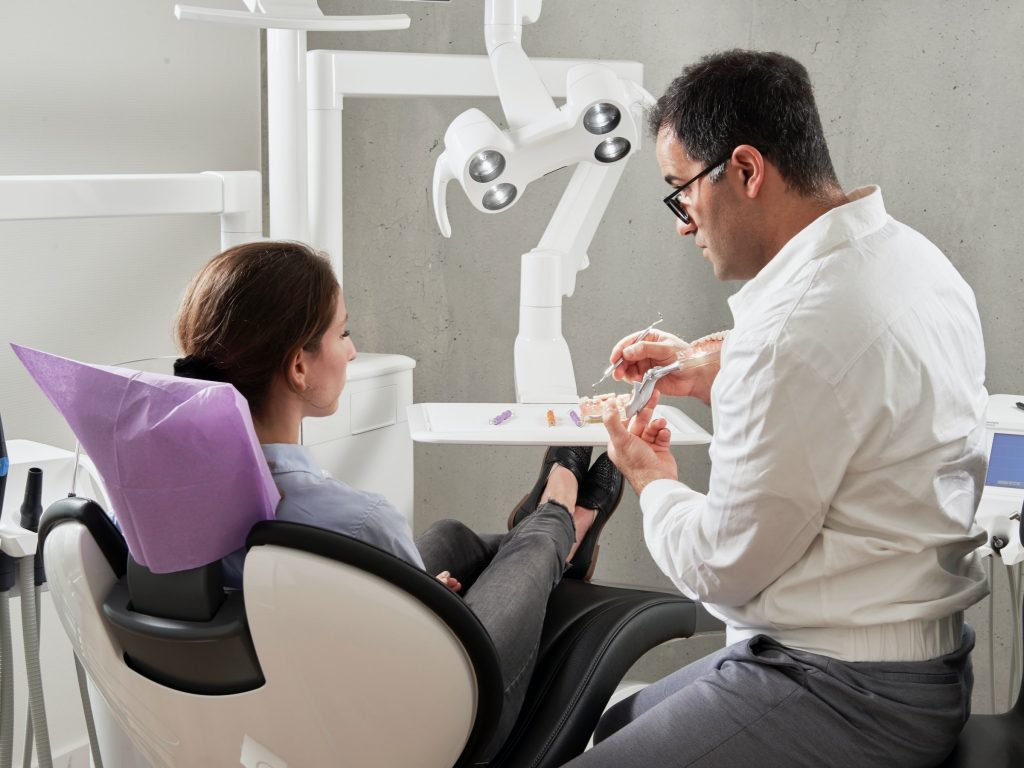
Many benefits come with being a dental hygienist.
From work-life balance to the available positions across the country, there’s much to consider.
However, these are the top pros of becoming a dental hygienist.
Remember that the pros can be different for each person who decides to go through the education process and complete the requirements.
Consider the following details related to the positive aspects of this career.
Low Stress
Generally, the position of a dental hygienist is a low-stress option.
There are instances where you might deal with fearful or in pain patients, but you usually don’t have issues with behavior.
In the rare case you do, you work with others in the clinic who can provide support.
This might be the perfect fit if you want a low-stress job working in the dental field.
No Holidays
Dental hygienists work dental clinic hours, which means they don’t’ work during the holidays.
This aspect gives you the chance to be with family and friends and not miss out on the important gatherings during the year.
In addition to no holidays, you’ll also have the weekends off.
No Working Nights
If you want to stick to a daytime job with no nights, then this might be the career you want.
There are no nights with this position.
You’ll work the standard hours of the dental clinic, so you have a predictable job with set hours.
This allows you to have a better work-life balance and a schedule that works for you without being unpredictable.
In-demand Job
There is a high demand for dental hygienists across the country.
There are more dental clinics than ever across the country, with each needing a dedicated professional on their team.
You can move to almost any area of the country and find open hygienist positions in most cities and towns.
You can go almost anywhere in the world and find a position available, which is ideal if you don’t know where you want to settle.
Comfortable Environment
When you work in a dental clinic, you work in a clean and comfortable environment.
You don’t’ have to worry about the condition of your surroundings or the temperature because this is closely controlled in the medical setting.
Everything in the office has a designated place where it should be, which makes working in the field much more manageable.
Work Flexibility
In many scenarios, there is a good amount of flexibility with a dental hygienist’s job.
Sometimes you have more control over your schedules, so you can fit in things you need to do during the day.
This is perfect for people who have doctor’s appointments or school-related functions they want to attend.
Consider the level of flexibility for each job before you accept a position working in a clinic so that you can get the best options.
Good Hours
Most dentist’s offices are open from 9-5, which for many people is the ideal schedule.
It means you don’t have to wake up very early, and you’ll have time to get kids off to school or wake up and take care of personal errands before you need to go to the office to begin the workday.
Cons of Being a Dental Hygienist
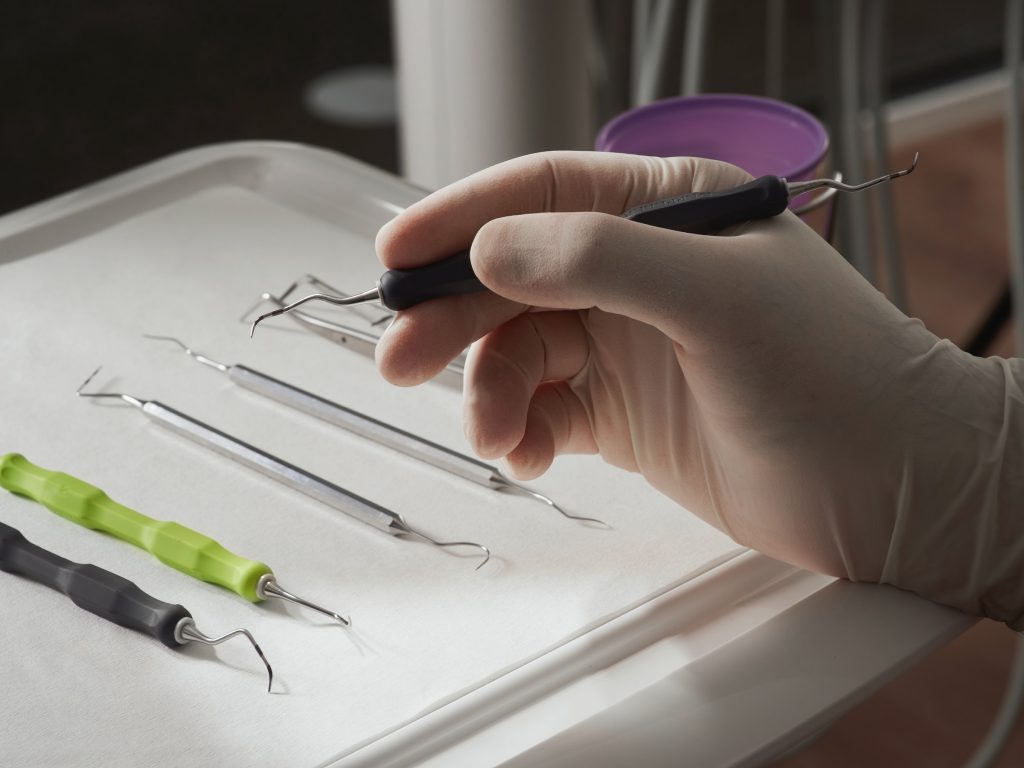
While there are many pros associated with becoming a dental hygienist, there are also just as many cons.
It’s important to weigh the downside of any career before you make a decision.
Keep in mind that this career path isn’t suited for every personality type, and there may be parts of the job that are hard to deal with or may prove to be incompatible with the person’s needs.
Time to Complete Training
The dental hygienist program takes, on average, four years to complete.
Each candidate must attend an accredited program, usually at a local college or university, then complete the testing and fulfill other requirements per the state.
You must have a Bachelor of Science in Dental Hygiene in most states; however, some states allow you to have a two-year associate degree.
Be sure to check with your state to determine if you qualify or how much training and school credits you need to complete the course.
Cost of the Education
The average four-year college course required to become a dental hygienist is somewhat costly compared to other fields of study.
You can figure that you need to cover over $20k in school costs and expenses throughout training.
While financial aid programs help with the first few years of school, many students may need to find alternative solutions to pay for their school once financial aid runs out.
Consider the methods you’ll use to pay for school before starting your training.
Repetitious
A dental hygienist’s job doesn’t have much variety throughout the day.
You are responsible for doing the same duties daily.
The only thing that changes about the job is the patients you interact with during the shift.
You need to ask yourself if you are alright with having a job that is the same and requires you to do the same tasks the entire time you work at a dental clinic.
Standing
If you choose to go in the field of dental hygiene, you’ll likely be standing for the majority of the day.
You’ll also be bending, working with equipment, and walking around all day.
You’ll probably be on your feet for over 6 hours of an entire shift, especially if you work in a very busy clinic.
You must ensure you can stand and perform all the physical functions required to fulfill the duties of this job before you begin your training and education.
May Not Have Full-time Hours
One aspect many don’t consider when training to become a dental hygienist is that you sometimes can’t find full-time hours.
If this is the case, you might not make enough money to fulfill your life goals.
Be sure you check out the median salary in the area you want to practice and determine if it’s a living wage for your lifestyle or personal needs.
Possibly No Benefits
A serious drawback for any career is a lack of benefits.
In the case of becoming a dental hygienist, you’ll have a hard time finding full-time work.
If this is the case, you won’t be eligible for benefits.
That means you’ll be responsible for paying for any insurance or other life tool such as retirement accounts instead of your employer.
Bodily Fluids
If you become a dental hygienist, you’ll be working directly with people’s mouths and bodily fluids.
While working with the mouth is interesting, it can also be a serious drawback for many who prefer not to deal with the less than ideal parts of the mouth, including saliva, blood, and other buildups.
Should You Become a Dental Hygienist?
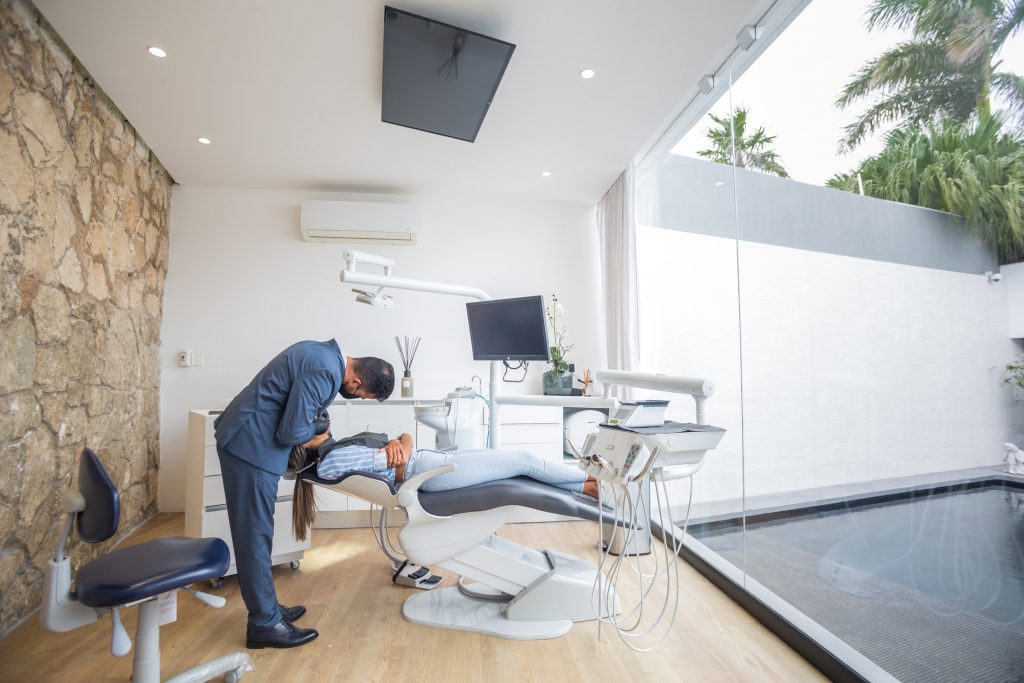
Before deciding if you want to become a dental hygienist, there are many points to consider.
The best way to determine if this is the right career path is to research all the finer points about the process to get the correct accreditation, as well as a focus on the daily duties you’d perform while employed at a dentist’s office.
Do you like working in close contact with people?
Do you like to be social?
Do you have an interest in the oral care field?
While being a dental hygienist requires many skills and operates in a field with continuous breakthroughs in technology and oral care, you must have a mind that is attuned to learning about the human body while also wanting to interact closely with those patients to teach them about oral care and how to manage their daily habits to ensure they have a healthy mouth and teeth.
Pros and Cons of Being a Dental Hygienist Summary Table
| Pros of Being a Dental Hygienist | Cons of Being a Dental Hygienist |
|---|---|
| Low Stress | Time to Complete Training |
| No Holidays | Cost of the Education |
| No Working Nights | Repetitious |
| In-demand Job | Standing |
| Comfortable Environment | May Not Have Full-time Hours |
| Work Flexibility | Possibly No Benefits |
| Good Hours | Bodily Fluids |
